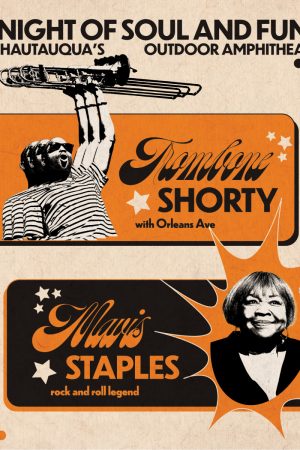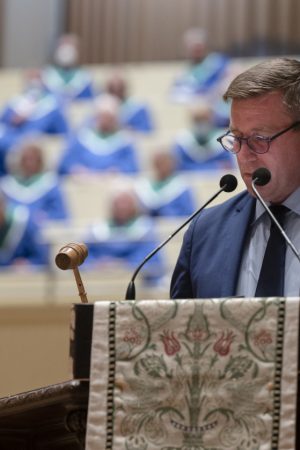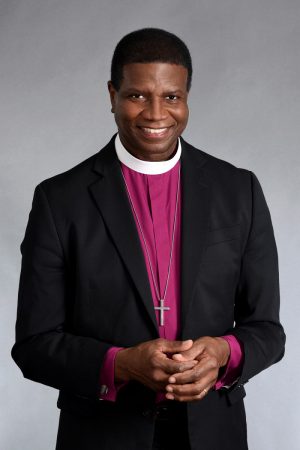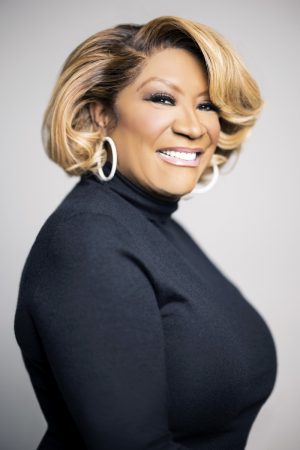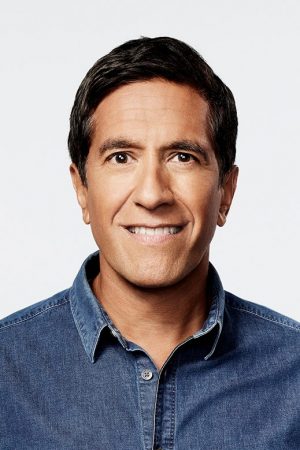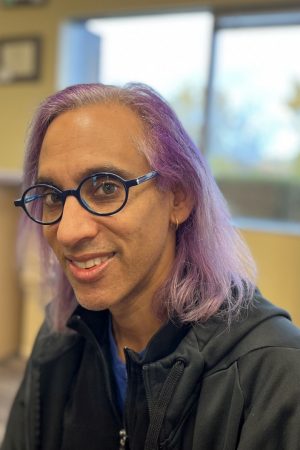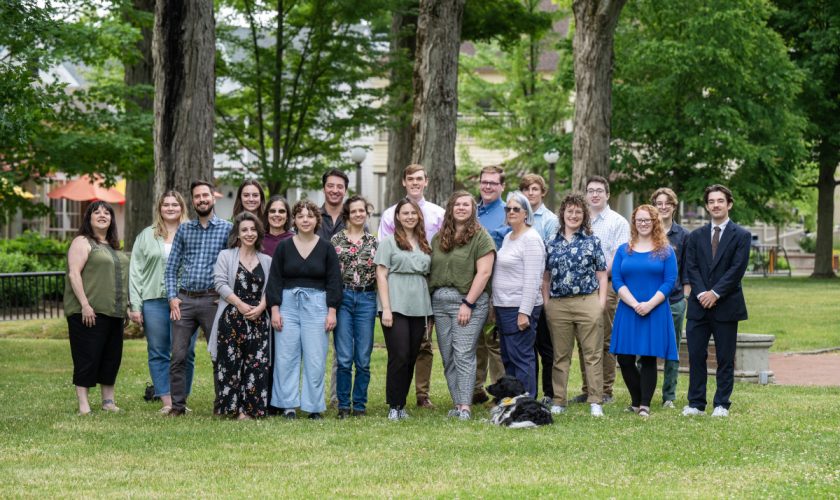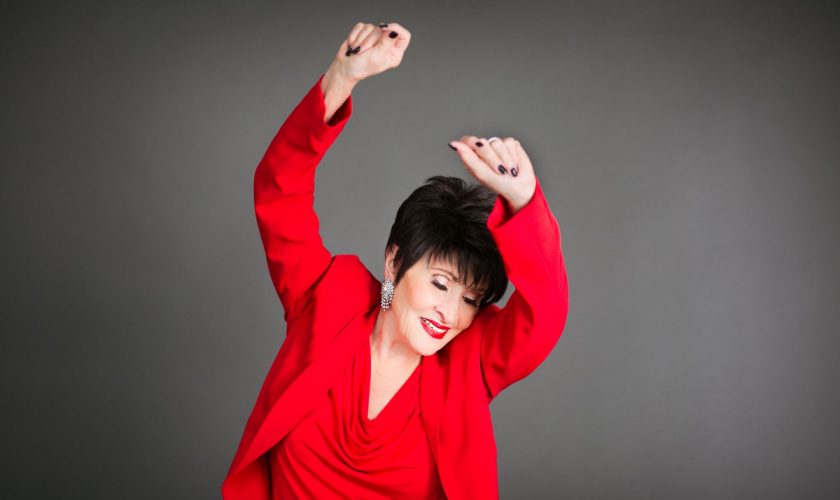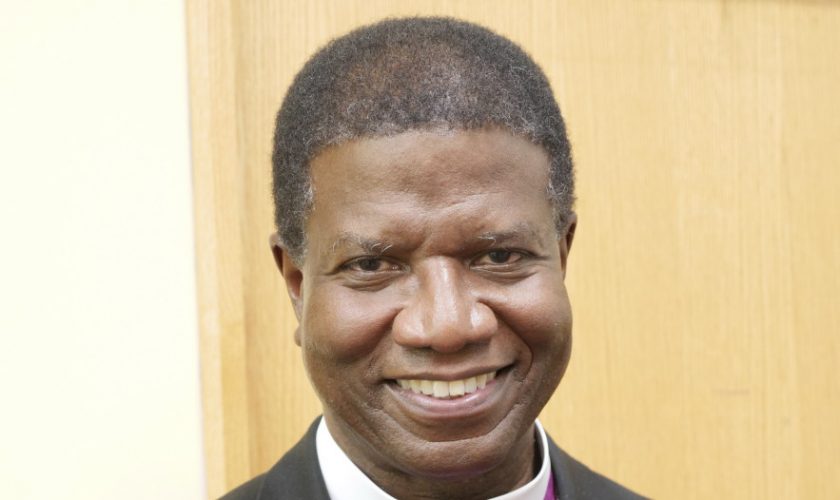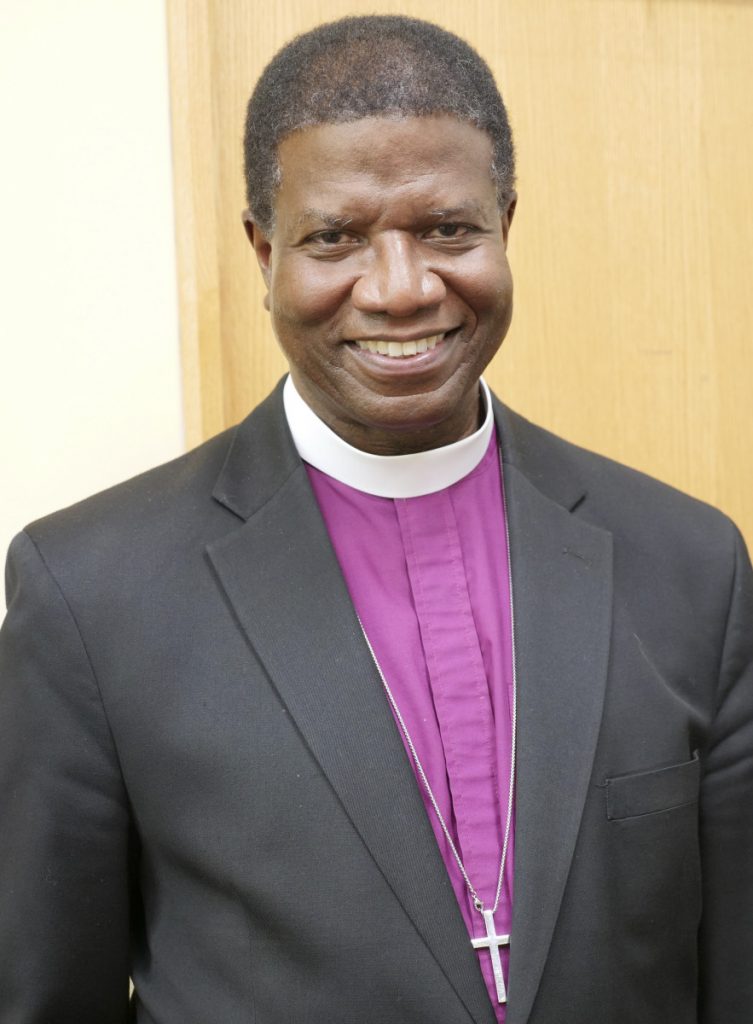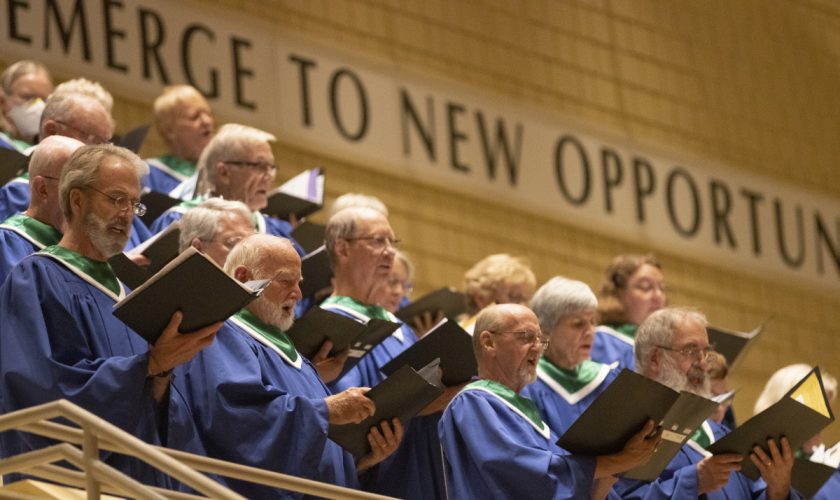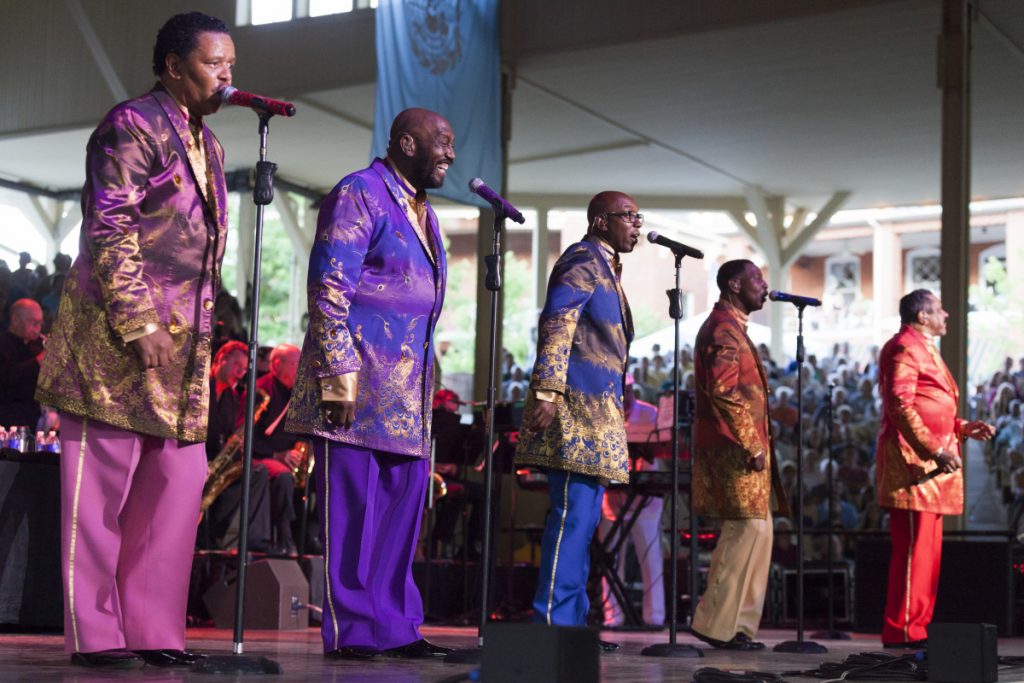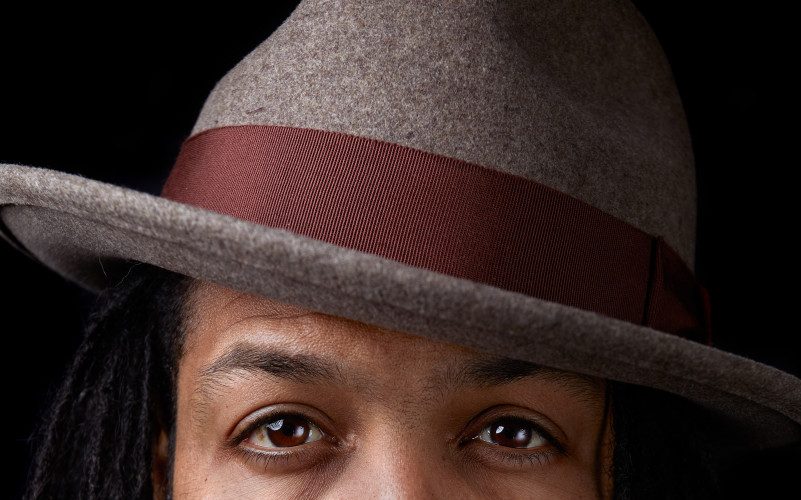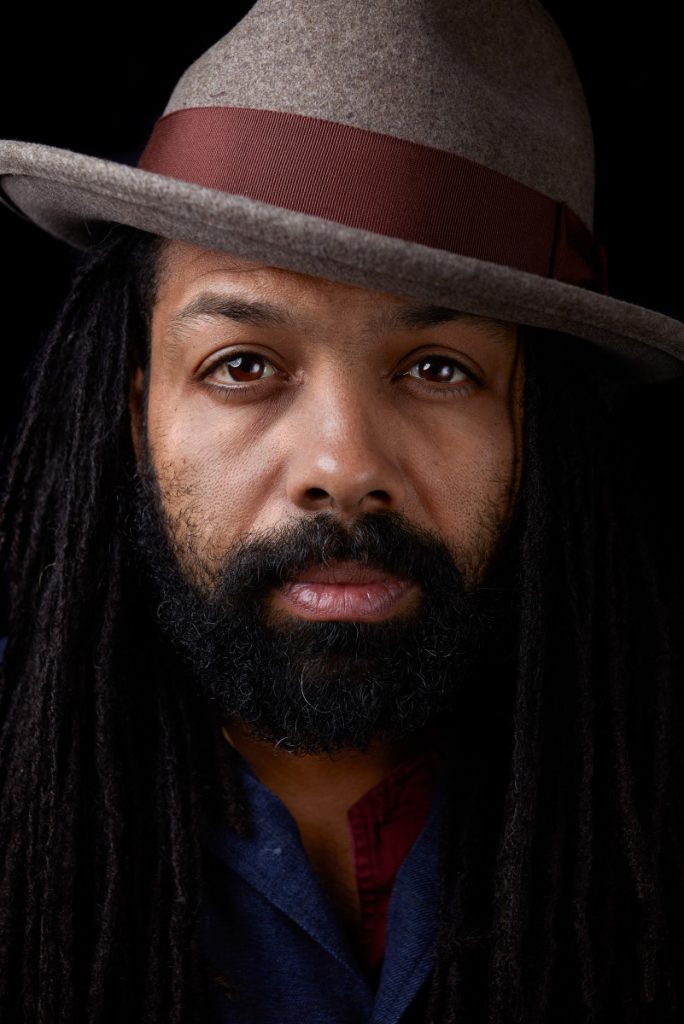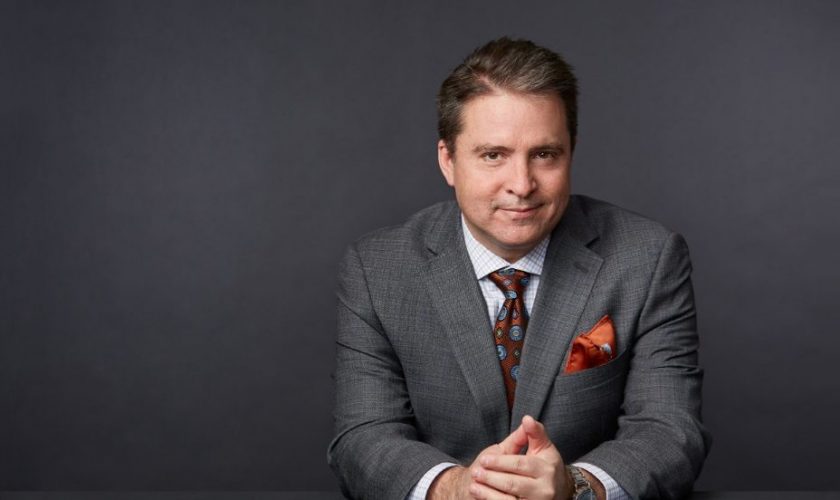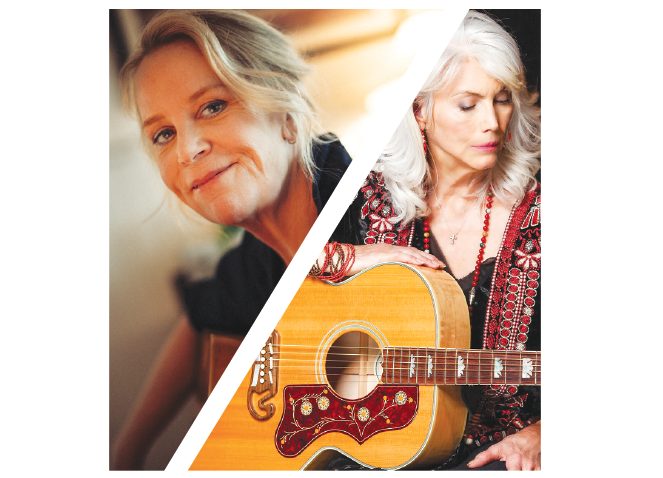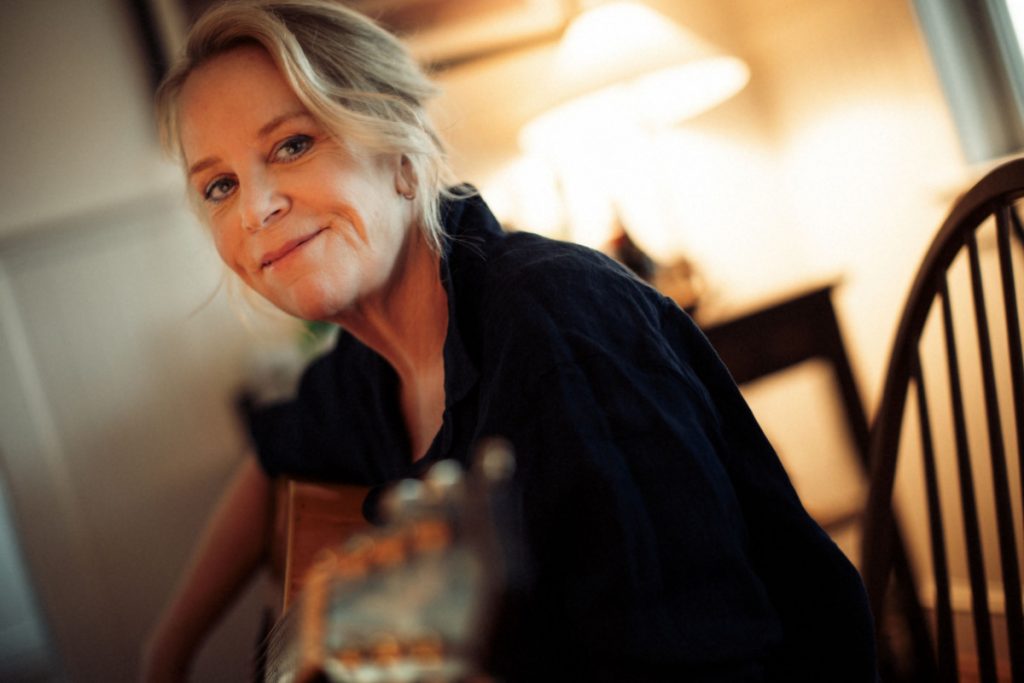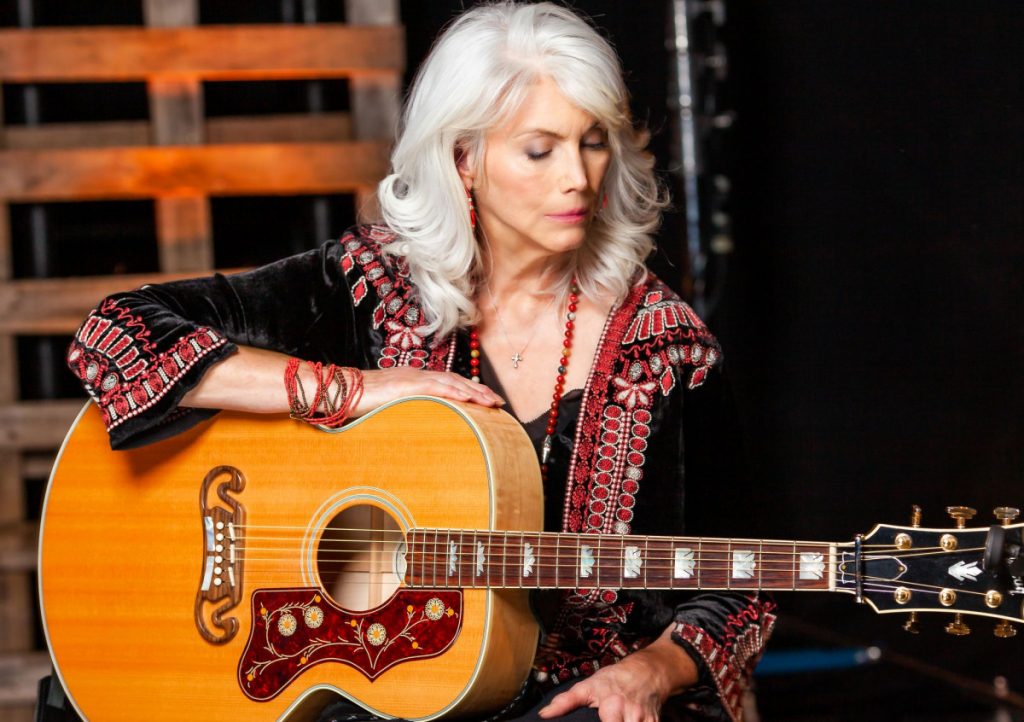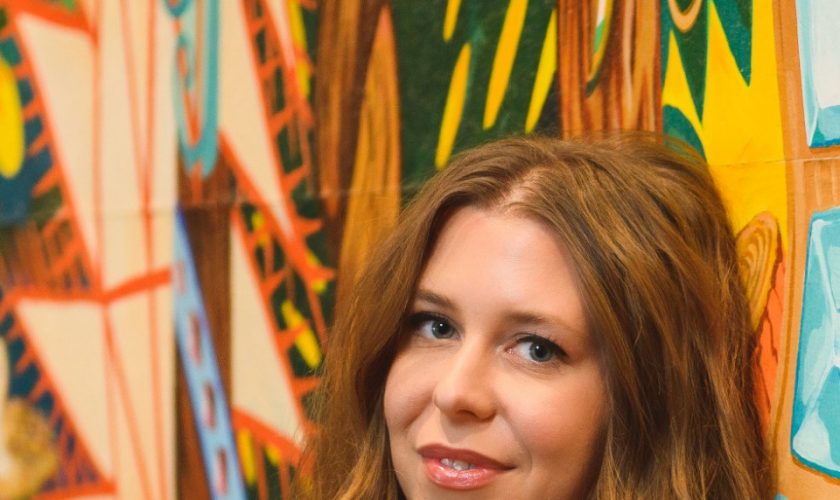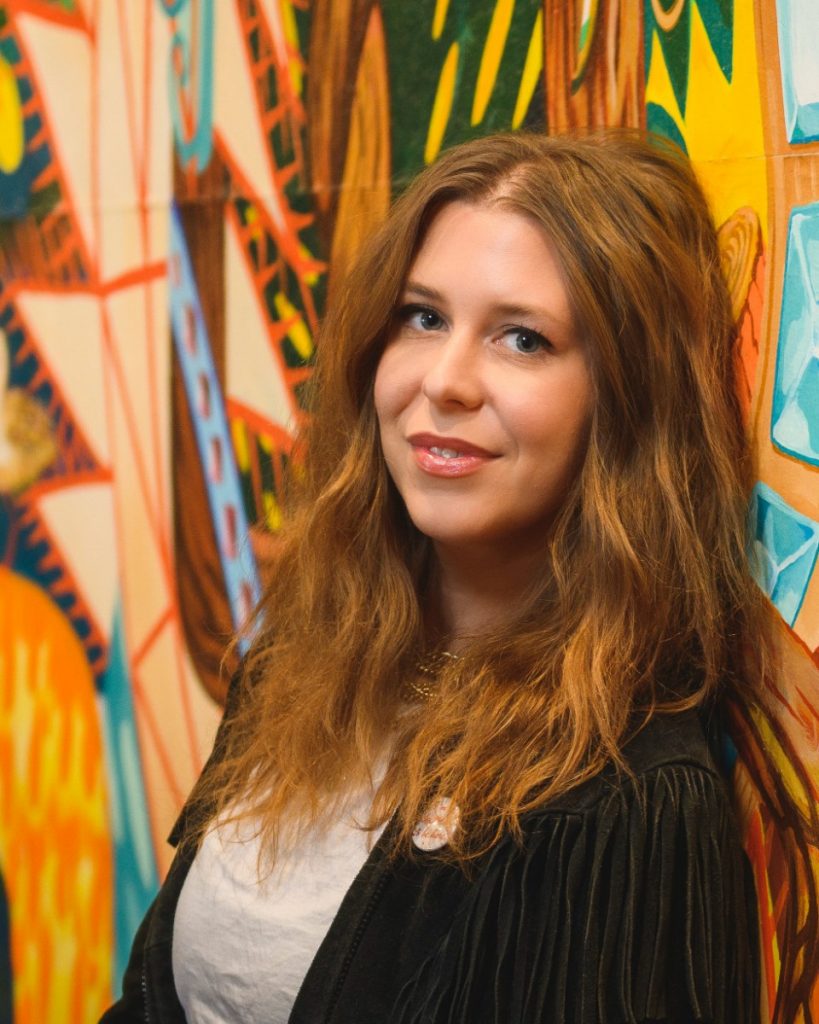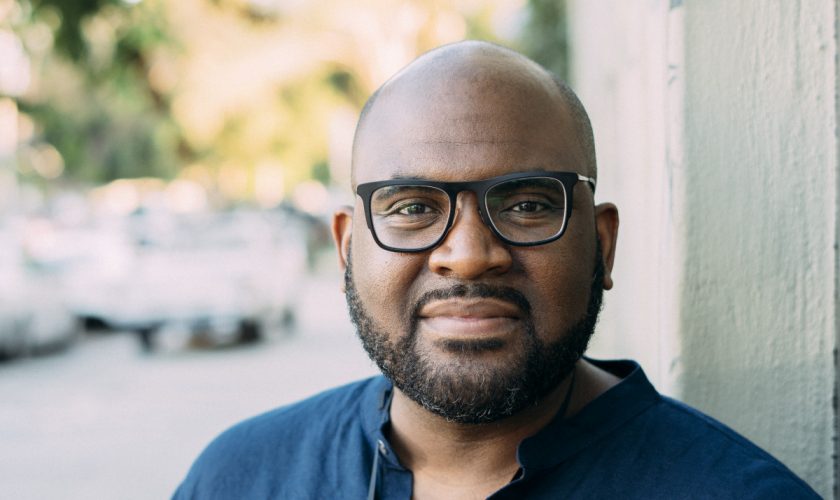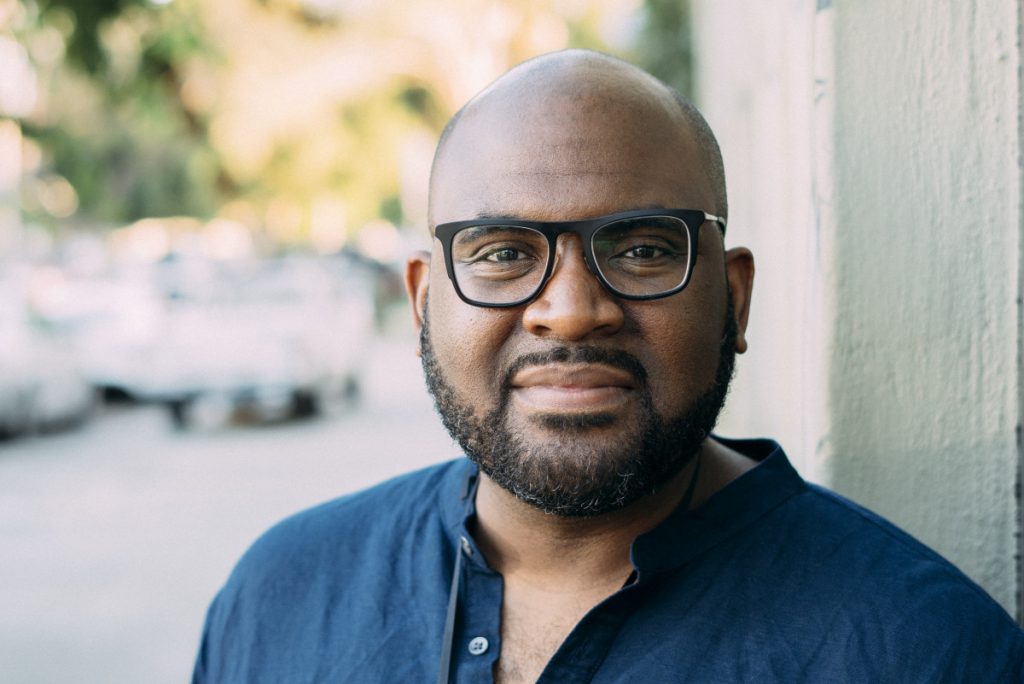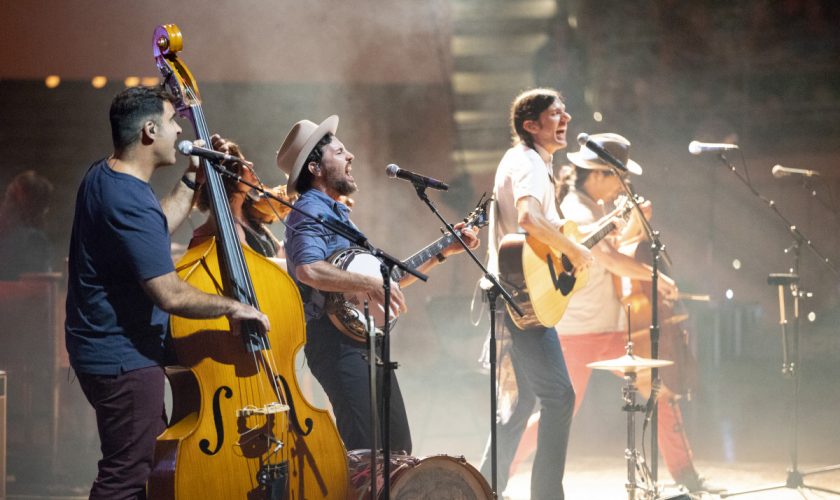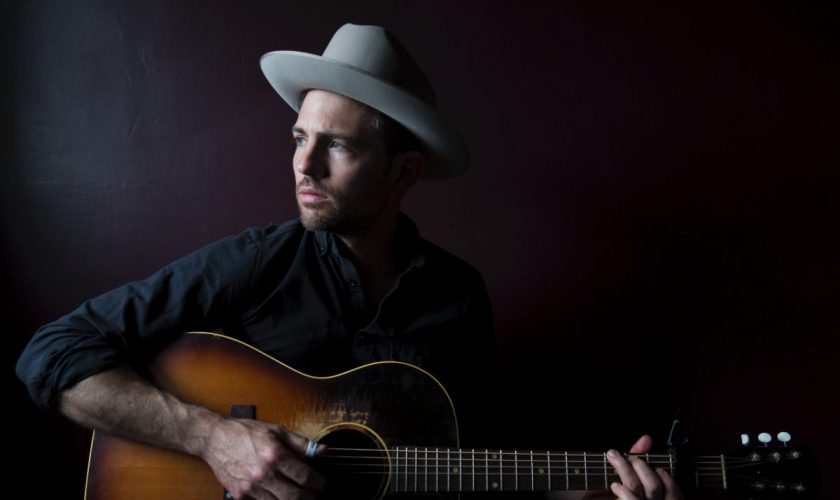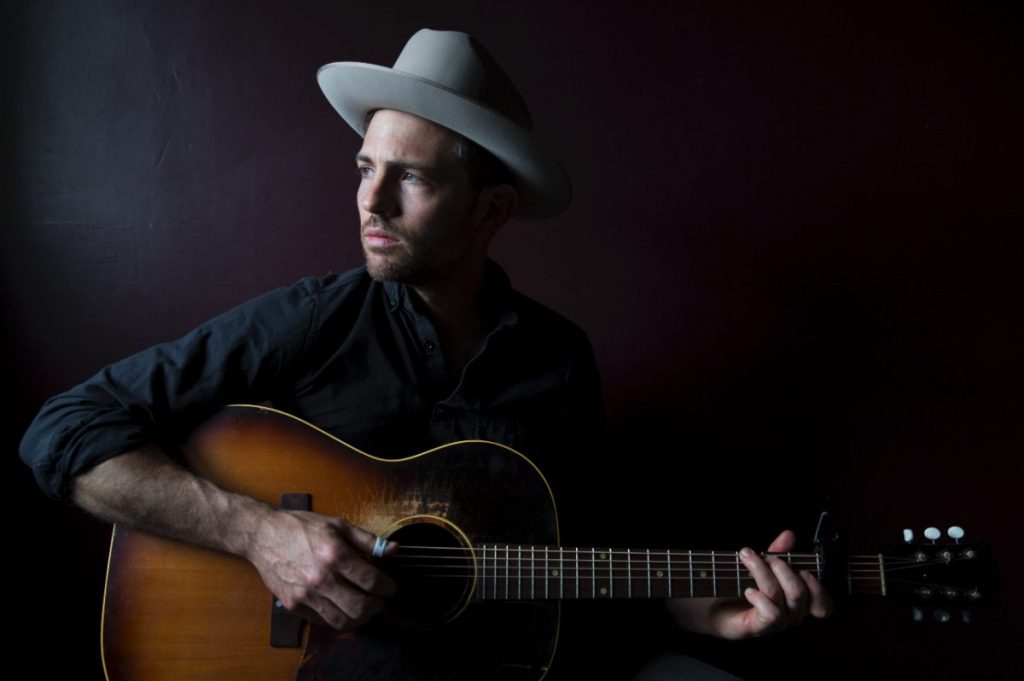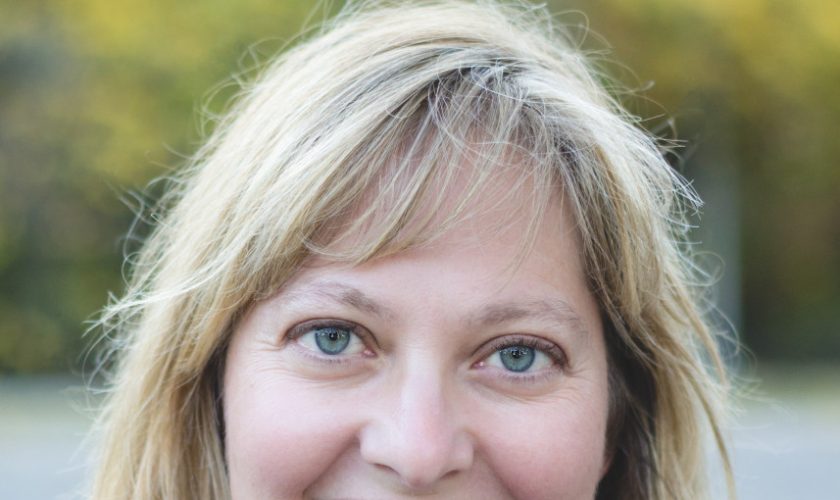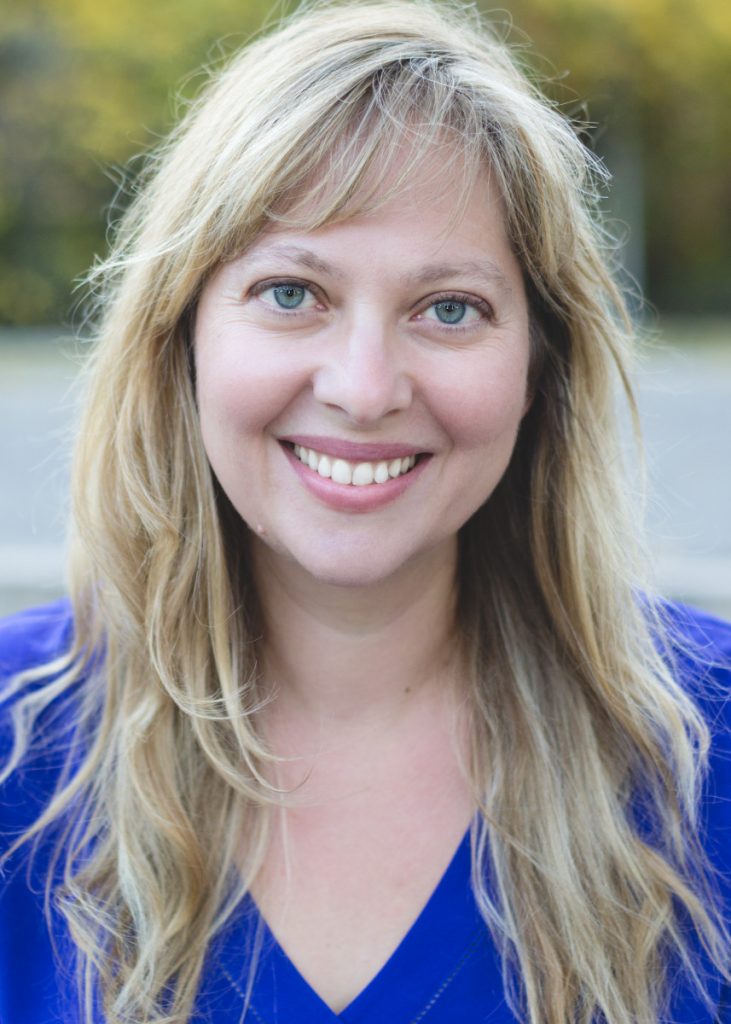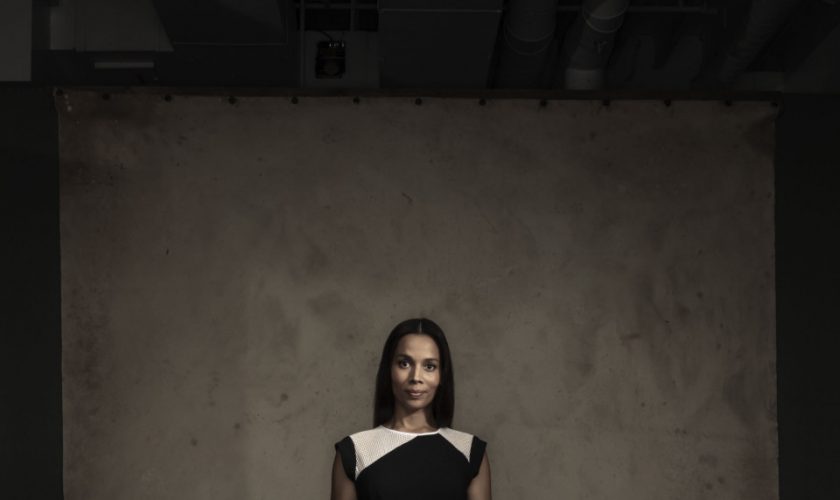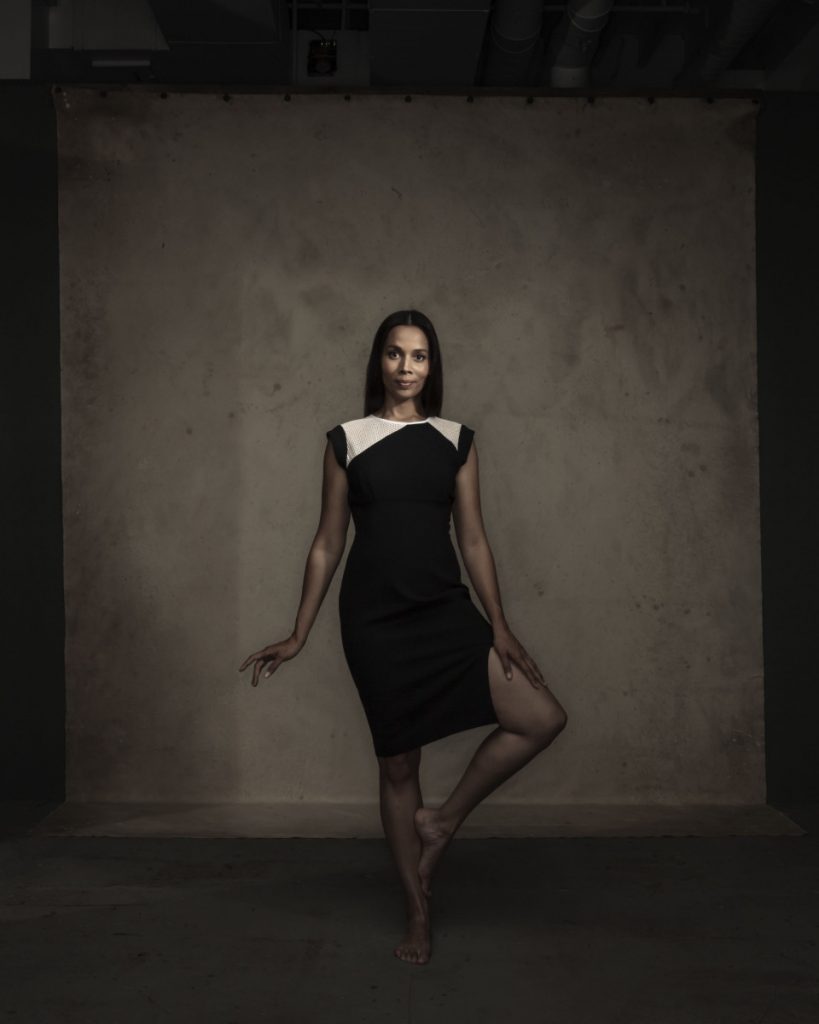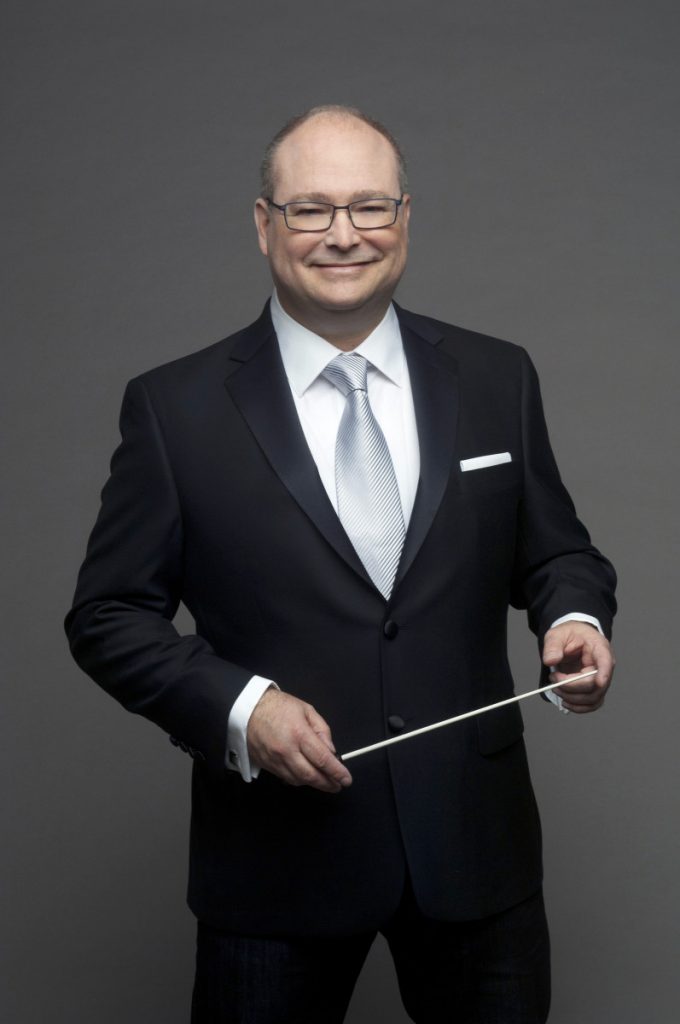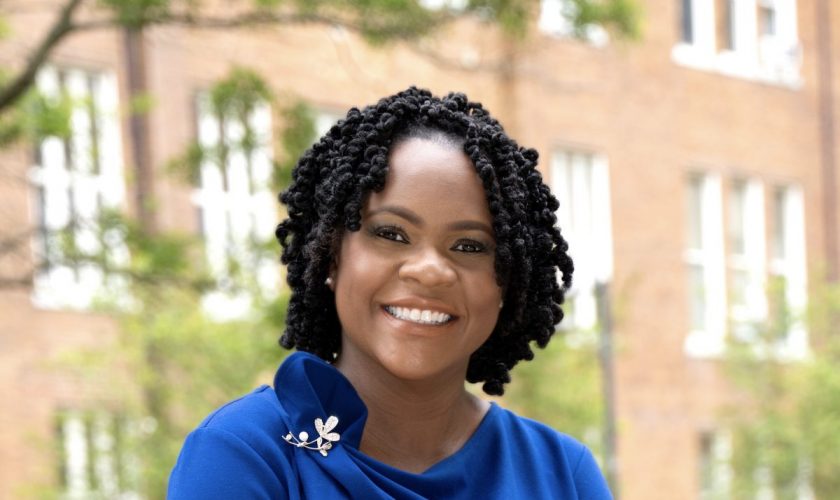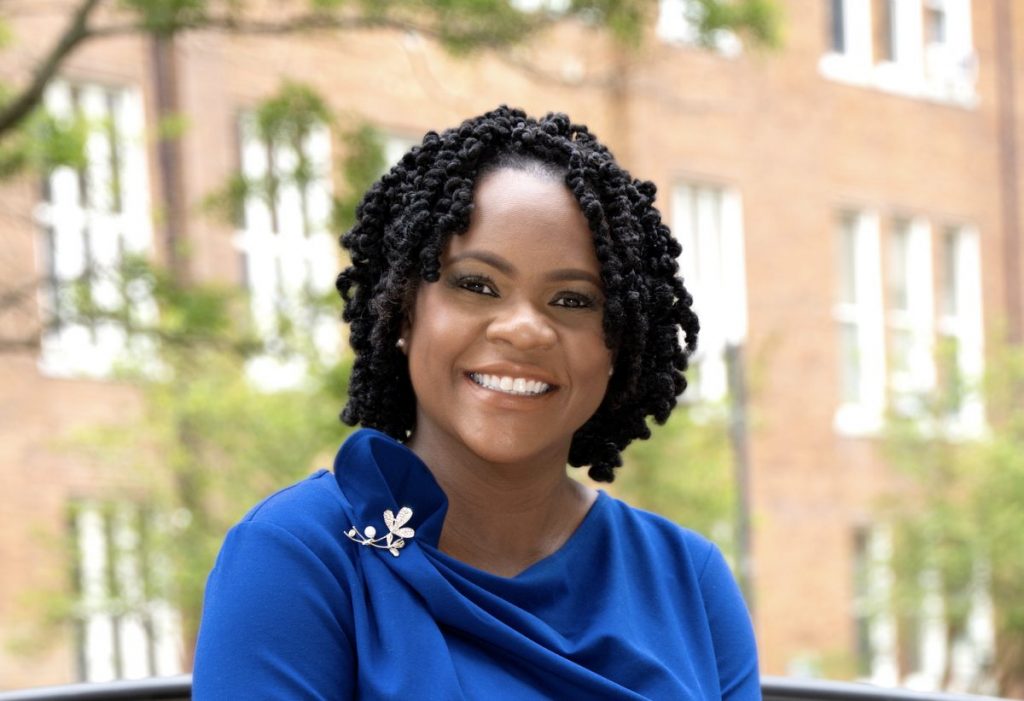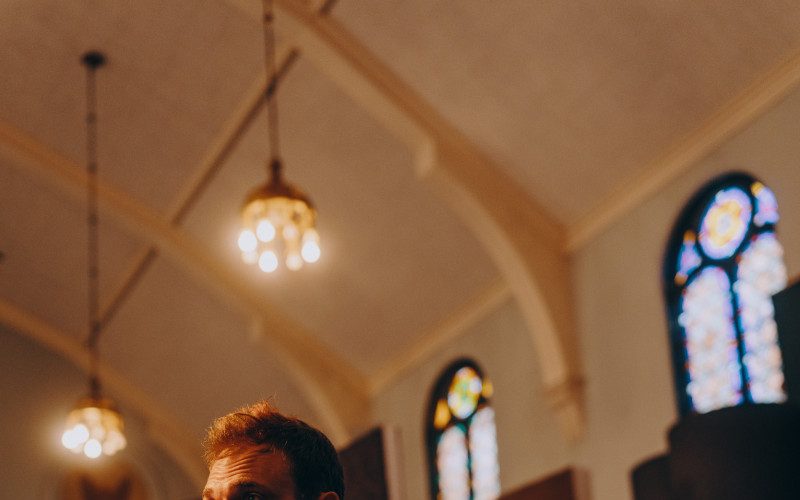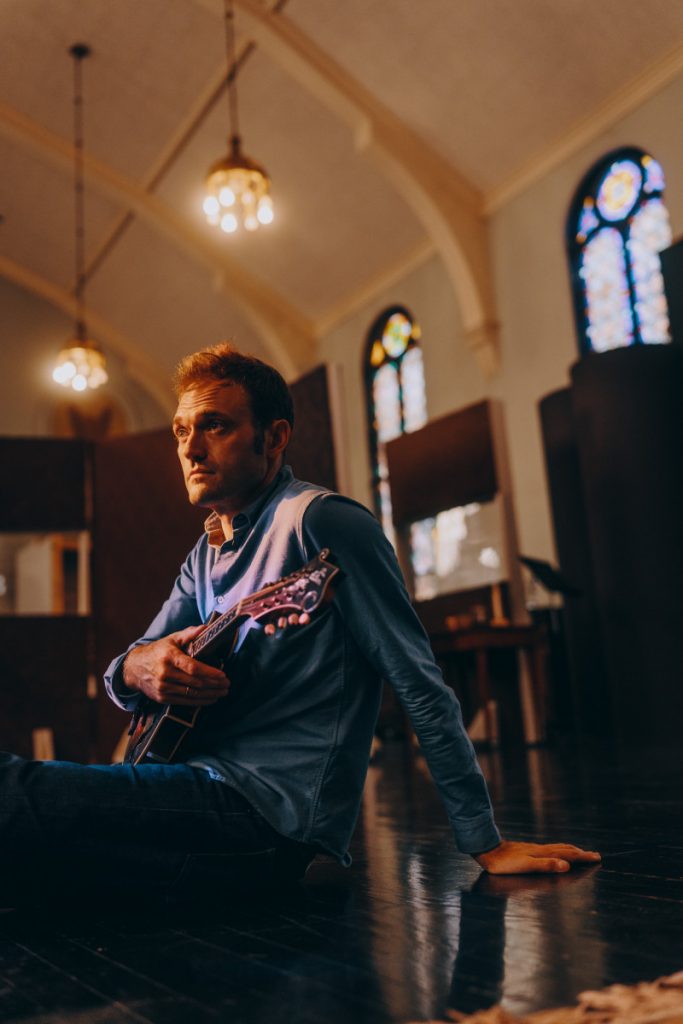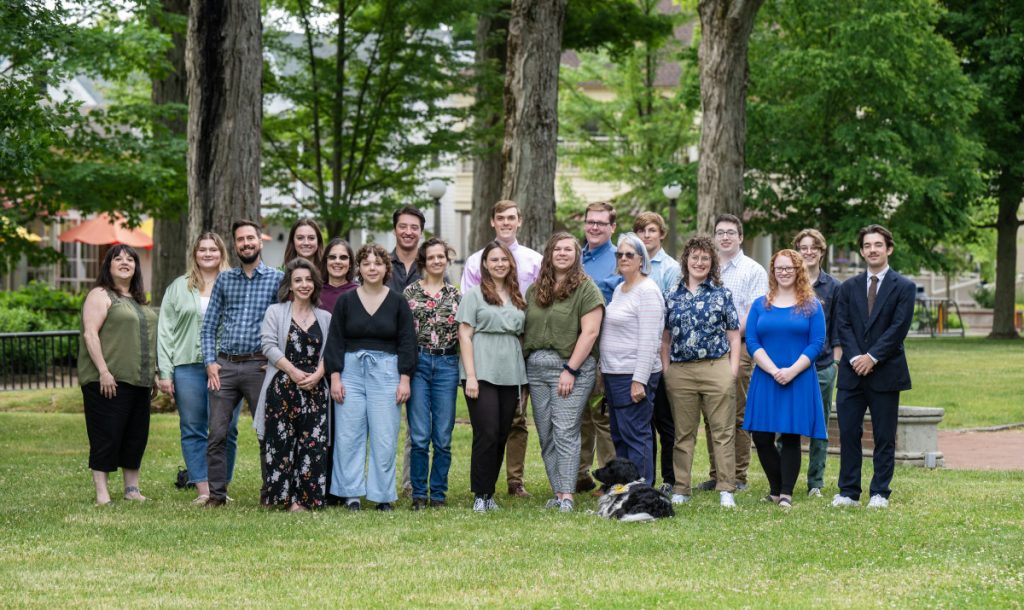
Alyssa Bump, contributing writer
Alyssa Bump is eagerly returning for her second season with the Daily as a contributing writer, covering the Chautauqua Chamber Music Resident Artist Series. Alyssa graduated from SUNY Fredonia this May, receiving concurrent degrees in journalism and public relations. When she isn’t writing articles, you can find her at the Poetry Makerspace, where she will be working as a Poetry Docent this season. Alyssa enjoys spending her free time drinking coffee in nature, completing jigsaw puzzles and forging connections with others wherever she goes.
Arden Ryan, senior circulation manager &
contributing writer
Arden Ryan is delighted to celebrate his seventh season with The Chautauquan Daily. A longtime Chautauquan, he will be working harder than ever this summer as a contributing reporter and senior circulation manager. Raised in Towson, Maryland, Arden is a rising sophomore at Carnegie Mellon University studying professional writing and international relations. If he’s not around the Daily office, Arden can be found relaxing, playing dominoes, and jumping in the lake.
Brett Phelps, staff photographer
Brett Phelps is a visual journalist from Bardstown, Kentucky. Entering his junior year, Brett studies photojournalism, marketing, data analytics and computer information systems at Western Kentucky University. In his first summer at Chautauqua, Brett looks forward to soaking in all of the culture and knowledge that the season has to bring. In his downtime, he enjoys taking long drives through the country backroads (with the windows down), going on hikes, traveling to new destinations, attending concerts and playing the piano. Brett’s life endeavor: Capturing the celebration of life!
Carrie Legg, staff photographer
Carrie Legg is a photographer for The Chautauquan Daily. She is a recent graduate of Ohio University with a Bachelors of Science in Photojournalism and a specialization in social sciences. Carrie was the photo editor of Southeast Ohio Magazine for two seasons and worked on the photo staff of her school paper, The Post, for four years as a staff photographer and eventually photo editor. Carrie has been taking photos casually for almost a decade, but professionally for about six years. She is passionate about sharing stories of people and events in a visually interesting way that causes critical thinking and contemplation. In her free time, Carrie enjoys being outdoors, hanging out with friends, and playing with her two cats, Pepper and Poppy.
Corrine Kayes, business office manager
Corrine Kayes is undertaking her third season working at The Chautauquan Daily, and her second serving as the business office manager. Currently attending Alfred University with a major in clinical psychology, she is excited to return to her hometown for the summer to help ensure a successful season for the paper. In her free time, she can be found reading or spending time with her pets.
Dave Munch, photo editor
Dave Munch serves as multimedia producer for Chautauqua Institution and works during the summer assembly season as photo editor of The Chautauquan Daily. A Cincinnati native, Dave graduated from Ohio University with a degree in photojournalism and has worked as a staff photographer for the Baltimore Sun Media Group and the Erie Times-News. His work has received local and national recognition and has been featured in publications across the country. Dave lives in Jamestown with his partner and enjoys tending to an increasingly large vegetable garden when the temperature is above freezing.
Deborah Trefts, staff writer
Deborah Trefts is a policy scientist with extensive United States, Canadian and additional international experience in conservation. She focuses on the resolution of ocean and freshwater-related challenges and the art and science of deciphering and developing public policy at all levels from global to local.
Evan Riedesel, circulation assistant
Evan Riedesel is a rising sophomore at Chautauqua Lake Central School where he is a member of the soccer, wrestling and track teams. He also is a member of the academic quiz bowl team and the Envirothon team. He is a Daily carrier, and is apprenticing this year as circulation assistant. He is a native of Mayville and has been working at the Daily for two years. Evan loves to bike, run, and travel. When he’s not working at the newspaper, you might see him at the Heirloom restaurant bussing tables.
George Koloski, design editor
George Koloski is returning for his second summer in Chautauqua as a design editor for the Daily. Born and raised in Columbus, Ohio, George is a senior majoring in information graphics and publication design at Ohio University. At OU, he is the design director for Variant Magazine, a student-run fashion magazine. When he is not designing, he likes to make pottery, draw and listen to music. His goal for the summer is to meet every dog on the grounds.
Henry Domst, design editor
Henry Domst is a rising senior at SUNY Fredonia double-majoring in graphic design and art history with a minor in computer science. He is originally from Springville, New York, and currently works for his school newspaper, The Leader, as design editor. Already this summer he studied abroad in Florence, traveling all over Italy, experiencing new things, indulging in the cuisine and feeling inspired. When he’s not designing, you may see him biking. Henry is excited to meet everyone in Chautauqua, hoping to expand his network and make long lasting friendships.
HG Biggs, staff photographer
HG Biggs is a rising senior at the University of Mississippi where she studies Mandarin Chinese. HG credits baseball with sparking the start of her photographer career. Her first experiences holding a camera were taking photos through chain link fences at her brothers’ little league t-ball games. HG has just finished three years working for the University of Mississippi’s student-run newspaper, The Daily Mississippian; two and a half of those years she spent as photo editor. During her first summer in Chautauqua, HG will be working as a photographer for The Chautauquan Daily, and she is excited to photograph everything outside of the sports fields where she spends much of her time at home.
James Buckser, staff writer
James Buckser is a rising junior at Boston University studying journalism. At BU he works with The Daily Free Press and WTBU News, among other campus publications. He is very excited to be reporting on the Interfaith Lecture Series during his first season at Chautauqua, and for the opportunity to interview a wide array of interesting voices. While currently residing in New England, James grew up in Upstate New York, and is looking forward to returning. Outside of reporting, James enjoys going on poorly-planned runs and playing the guitar badly.
Jess Kszos, staff photographer
Jess Kszos is an undergraduate photojournalism student at Rochester Institute of Technology. She is interested in photographing the stories of the community around her. Two years ago she started at Cobb’s Hill Park in Rochester, New York, to photograph people she did not know, and now she is a freelancer best known among the basketball community in Rochester. Her father, Joe Kszos, was born and raised in Chautauqua County, while her mother, Lynn Kszos, studied Chautauqua Lake while completing her Master’s Degree at SUNY Fredonia, and Jess is excited to be closer to her roots at Chautauqua.
John Warren, contributing writer &
writing coach
John Warren is a writing coach and contributing writer for The Chautauquan Daily. His “day job” is as news director for The University of California, Riverside. He was a writer and editor in print journalism for 20 years, including at The Virginian-Pilot. He is a lifelong Chautauquan
Julia Weber, staff writer
Julia Weber is a rising junior in Ohio University’s Honors Tutorial College where she is majoring in journalism and minoring in art history. Originally from Athens, Ohio, this is her first summer in Chautauqua and she is thrilled to cover the theater and dance performances. She serves as the features editor for Ohio University’s All-Campus Radio Network, a student-run radio station and media hub, and she is a former intern for Pittsburgh Magazine. Outside of her professional life, Julia has a newly adopted cat, Griffin, and she is an avid fan of live music and a dedicated ceramicist.
Justin Seabrook, design editor
Justin Seabrook was born in Charleston, South Carolina, but currently resides in Columbia, South Carolina. He is a senior at Francis Marion University majoring in graphic design with a minor in art history. Along with digital design, Justin also does digital and film photography, and has launched his own magazine and brand under the name “Never Enough.” He hopes to eventually turn that endeavor into a production company for local artists in South Carolina. His personal work is often heavily influenced by current politics, the conservation of the environment, and the interconnectivity of humanity.
Kaitlyn Finchler, staff writer
Kaitlyn Finchler is a journalism and public relations graduate from Kent State University as of May. This will be her second summer at Chautauqua where she will cover literary arts, serving previously as the Interfaith Lecture Series preview reporter. In her free time, you can find her reading, cooking or flipping between “Grey’s Anatomy” and “Gossip Girl.” She’s most excited to see how many times she can slip the word “plethora” into her stories before Sara makes her stop again.
Maddy Greenstein, business office associate
Maddy Greenstein is thrilled to be returning for their second season working in the business office at The Chautauquan Daily. They are a rising sophomore at Tufts University and a lifelong Chautauquan. When not at work, they can be found playing guitar and doing crossword puzzles.
Mariia Novoselia, staff writer
Mariia Novoselia is a senior at Western Kentucky University studying journalism with a minor in political science. Born and raised in Odesa, Ukraine, she previously attended Odesa I. I. Mechnikov National University. She has experience writing for student publications and interning at a local newspaper in Bowling Green, Kentucky. Summer 2023 will be her first season on the grounds of Chautauqua, where she will be covering environmental issues. Mariia is also a music enthusiast, and when not writing, she enjoys singing and playing the guitar.
Mary Lee Talbot, staff writer
Mary Lee Talbot writes the preview and recap for morning worship and the preview for the Sacred Song Service. She is a Presbyterian minister and a life-long Chautauquan. She is the author of Chautauqua’s Heart and 100 Years of Beauty. A year-round resident of Chautauqua, she lives with her dog Sammi, a Stabyhoun.
Meg Viehe, staff writer
Meg Viehe is a retired teacher living in Newport Beach, California, during the off-season. She is happiest when she and her husband Rich are surrounded by grandchildren and their parents, the extended Viehe clan and friends at Chautauqua. Her advice to her grandchildren and others: “Be nice to everyone at Chautauqua. You never know who will be part of your future family!”
Ruchi Ghare, design editor
Ruchi Ghare is a recent graduate from Pratt Institute, where she majored in graphic design with film as her minor. Originally from Mumbai, India, Ruchi has had a lifelong passion for storytelling through art, as well as a keen interest in learning more through experience. This summer, she is excited to join The Chautauquan Daily for a pleasant change of scenery and immerse herself in its culture and community. When she isn’t designing, Ruchi can be found listening to music or doodling on any surface she can find.
Ryan Corey, editorial office manager
Ryan Corey is a 2023 graduate of SUNY University at Buffalo, where he majored in Biochemistry and Pharmacology & Toxicology. He is excited to serve as the editorial office manager for the 2023 season and distribute daily bug facts to The Chautauquan Daily staff.
Sara Toth, editor
Sara Toth is entering her sixth summer as editor of The Chautauquan Daily and works year-round in Chautauqua Institution’s Department of Education. Previously, she served four years as the Daily’s assistant and then managing editor. An alum of the Daily internship program, she is a native of Pittsburgh(ish), attended Gannon University in Erie, Pennsylvania, and worked for nearly four years as a reporter in the Baltimore Sun Media Group. She lives in Jamestown with her husband (a photographer) and her Lilac (a cat).
Sarah Russo, staff writer
Sarah Russo is a senior at Syracuse University studying broadcast and digital journalism. At Syracuse, she reports and hosts for CitrusTV and writes for The Daily Orange and Baked Magazine. Sarah also interned at the National Comedy Center last summer. When she’s not reporting, she enjoys being outside biking, swimming or reading. As a Chautauqua County native, Sarah is excited to work in a place close to home and her heart this summer. She will be covering the Chautauqua Symphony Orchestra and the Chautauqua Chamber Music Guest Artist Series.
Sophia Neilsen, copy editor
Sophia Neilsen is a senior at Ohio University studying communications with two minors in psychology and sociology. She studies her minors because she wants a better understanding of society and environments while grasping how different people think and the reasoning behind their behaviors. Sophia is creative and uses her curiosity and persistence in several school organizations, such as Thread Magazine, Variant Magazine, and Kappa Alpha Zeta. She joined these outlets to express herself creatively through academics and art.
Stacey Federoff, copy desk chief
Stacey Federoff is thrilled to be serving as copy desk chief at the Daily, returning for her second full season — albeit 14 years apart — after covering the theater company as a reporting intern in 2009. A native of Sutersville, Pennsylvania, Stacey holds a bachelor’s degree in journalism from Penn State University and master’s degrees in media communication and business administration from Point Park University. She has worked at three Pittsburgh-area newspapers, a public relations agency, and a record label, but by far, her favorite job is working as a haunt actor at the ScareHouse, where she will return for her sixth season this fall. Ask her about her record collection, the Zombie Pickle, or vintage Volkswagens when you see her on the grounds. She lives outside Pittsburgh with her fiance Dusty and their cat Nova.
Willow Hunt, advertising assistant
Willow Hunt is the advertising assistant at The Chautauquan Daily. Originally from Buffalo, she will be a junior this fall at the University of Miami, where she is a psychology major with minors in marketing and advertising. She’s been coming to Chautauqua for most of her life, and is excited to be working at the Daily!

